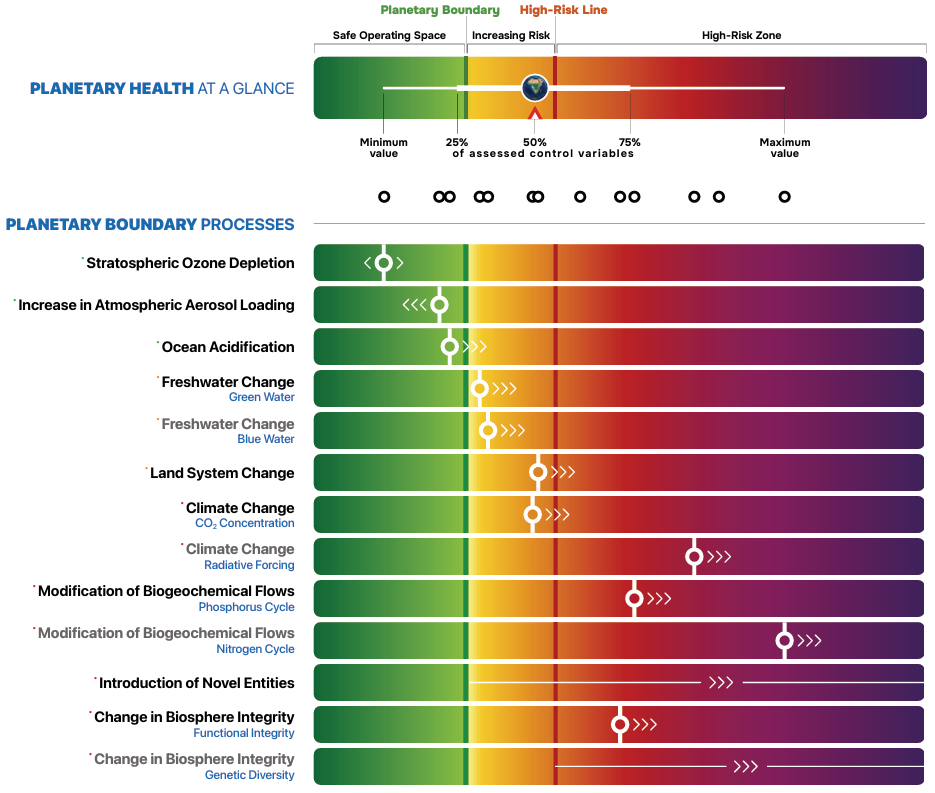

Led by the Potsdam Institute for Climate Impact Research (PIK), the inaugural ‘Planetary Health Check’ shows that acceptable limits for climate change, biosphere integrity, land system change, freshwater change, biogeochemical flows, and the introduction of novel entities – such as synthetic chemicals and plastics – have all been passed.
Ocean acidification is also approaching a “critical threshold”, with only atmospheric aerosol loading and stratospheric ozone depletion within the “safe operating space”.
While a boundary breach is not equivalent to drastic changes happening overnight, they increase the probability of crossing tipping points that cause irreversible damage to life-support functions.
“Our updated diagnosis shows that vital organs of the Earth system are weakening, leading to a loss of resilience and rising risks of crossing tipping points,” said Levke Caesar, PIK scientist and one of the lead authors.
“The message is clear, local actions impact the planet, and a planet under pressure can impact everyone, everywhere. Securing human wellbeing, economic development, and stable societies requires a holistic approach where the protection of the planet takes center stage.”
The Planetary Health Check combines pioneering Earth science, Earth observation data and multi-disciplinary thinking to evaluate 13 control variables across the nine planetary boundaries (see below).

For climate change, for example, it explains how atmospheric CO2 levels are at a 15-million-year high, with global mean temperatures now higher than at any point since human civilisations emerged.
Typically, environmental challenges such as climate change, biodiversity loss, and pollution have been addressed separately, but the authors warn that these issues are interconnected and must be tackled collectively.
The report will be published annually using the latest satellite data, AI, Indigenous Peoples wisdom, and the latest modern science, serving as a compass for decision-making for nations, companies, multilaterals, and all citizens.
“The Planetary Health Check is a major leap forward in our collective mission to understand and protect our planet,” said Pik director Johan Rockström. “We have known for some time that we are weakening the planet’s resilience.
“This scientific update shows that, irrespective of what scale we operate on, all actions need to consider impacts at the planetary scale. Stewardship of the planet is necessary in all sectors of the economy and in societies, for security, prosperity and equity.
“By quantifying the boundaries for a healthy planet, we provide policy, economics and business with the tools needed to steer away from unmanageable risks."
Image credit: Shutterstock